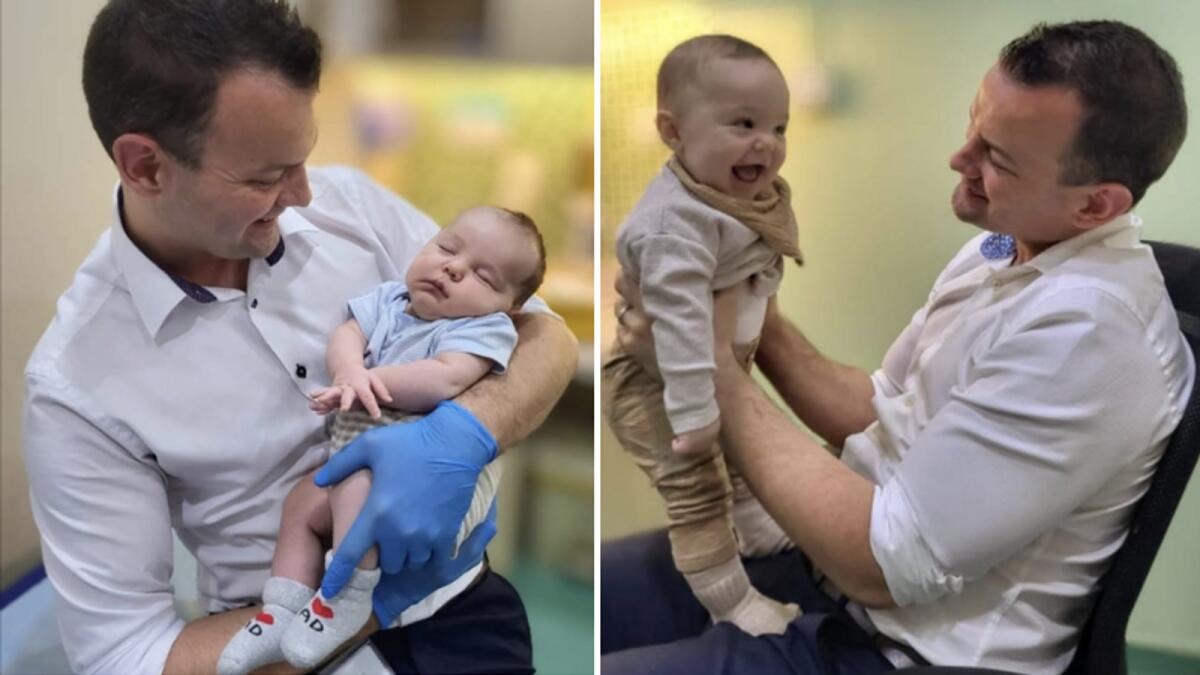Doctors at a hospital in Abu Dhabi recently performed a complex surgery to save a baby born with a rare and life-threatening congenital condition known as tracheoesophageal fistula (TEF) with oesophageal atresia (EA). The newborn, Kai, was the first child for German couple Tim and Sarah, who noticed issues with Kai’s swallowing and breathing after birth. The neonatal team at Danat Al Emarat Hospital for Women and Children quickly intervened to assess Kai’s condition and determined the urgent need for surgery to prevent potential complications.
TEF with EA is a rare condition that occurs in about one in 4,000 live births, where the upper part of the oesophagus does not connect to the lower part, and an abnormal connection exists between the oesophagus and the trachea. This can lead to serious health risks, as air may enter the stomach and gastric acid could reflux into the lungs. Dr Brian MacCormack, a consultant paediatric and neonatal surgeon, explained the condition to Kai’s parents and emphasized the necessity of surgery within 24 to 48 hours to ensure a successful outcome.
The surgical team utilized a muscle-sparing technique to connect the two ends of Kai’s oesophagus, ensuring a shorter recovery time and reducing the risk of complications. Following the surgery, Kai remained stable and recovered well in the neonatal intensive care unit. Within a week, Kai was able to resume feeding normally and was discharged to go home with his parents. Dr MacCormack highlighted the importance of ongoing monitoring for Kai, as the condition could present challenges throughout his life.
Despite the success of the surgery, Kai may face future challenges related to tracheomalacia, where the trachea is somewhat floppy, causing a persistent cough. However, with careful management and monitoring, these issues can be effectively handled. Kai’s parents have access to a support group for children with similar conditions, providing them with additional resources and guidance as they navigate Kai’s ongoing care and wellbeing. The couple expressed their gratitude for the dedication and professionalism of the medical team, who gave them the gift of their son’s improved health.
In conclusion, the successful surgery performed on Kai to treat TEF with EA highlights the importance of early intervention and specialized care for congenital conditions. Through the expertise of medical professionals like Dr MacCormack and the support of healthcare facilities like Danat Al Emarat Hospital for Women and Children, babies born with complex medical issues can receive the treatment they need to thrive. Kai’s story serves as a reminder of the resilience of newborns and the impact of skilled healthcare providers in saving lives and improving outcomes for families facing challenging medical circumstances.











